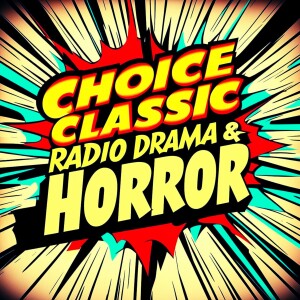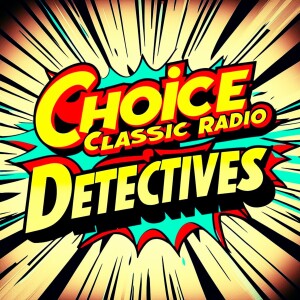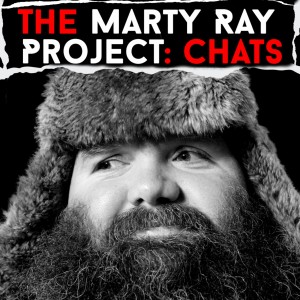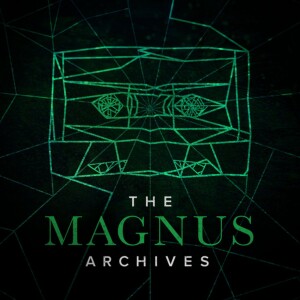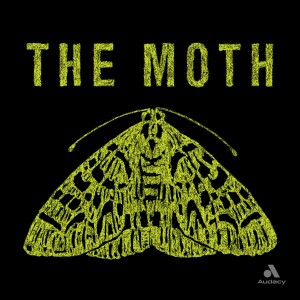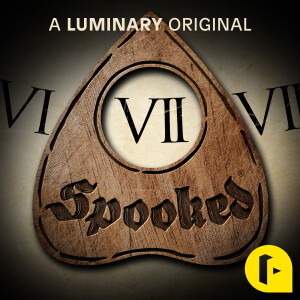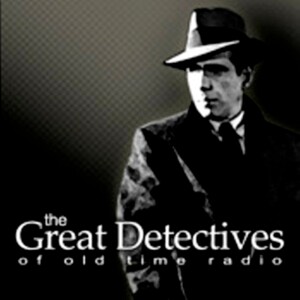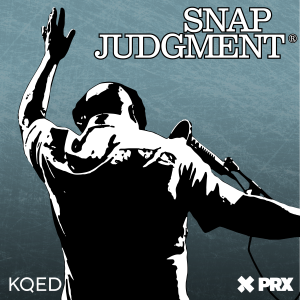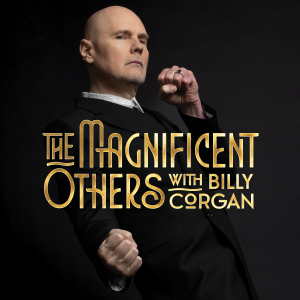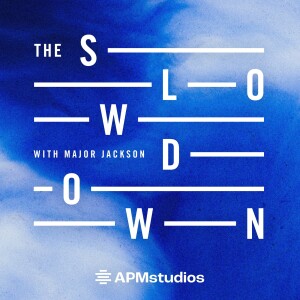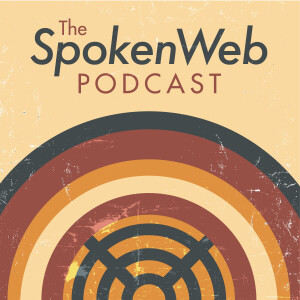

The SpokenWeb Podcast
https://feeds.simplecast.com/VW6kYL7uEpisode List
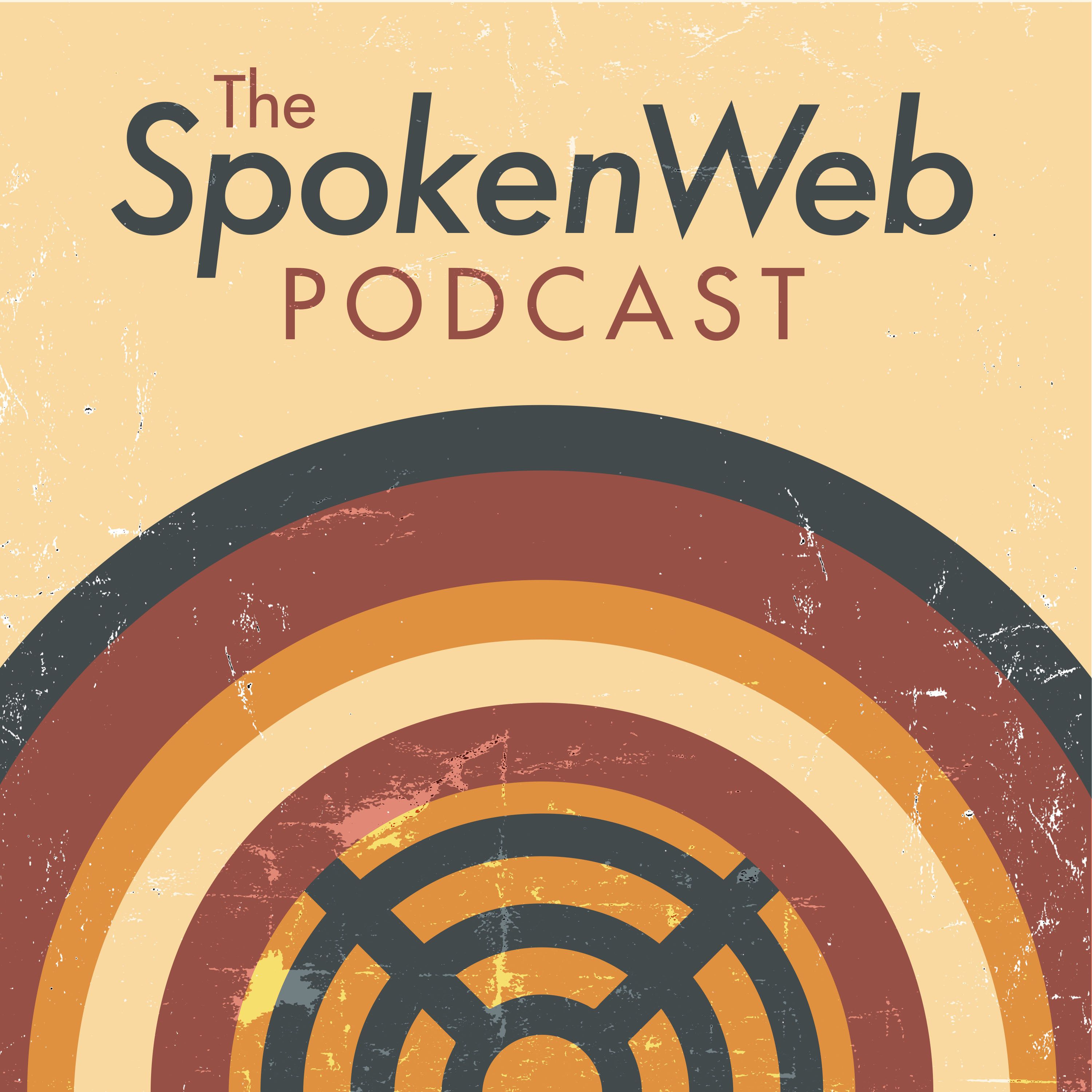
The SpokenWeb Symposia Retrospective: Celebrating Sound Studies
SummaryThis "farewell" podcast episode was recorded live at the SpokenWeb Institute on May 17, 2025, at the University of British Columbia Okanagan campus, Kelowna, BC. Producers Nick Beauchesne and Chelsea Miya, with host Maia Harris, lead an audio-visual journey exploring the roots and evolution of SpokenWeb's Symposia and Institutes from 2019 through 2025."The SpokenWeb Symposia Retrospective: Celebrating Sound Studies Since 2013" presents original voice, sound, and music from SpokenWeb collaborators (including Ali Barillaro, Nix Nihil, and Jason Camlot); clips from past Symposia manifestos; live panel guests (including Jason Camlot, Katherine McLeod, Karis Shearer, and Klara du Plessis); pre-recorded interview segments (including Jordan Abel, Oana Avasilichioaei, Annie Murray, Jason Wiens, Cole Mash, and Erin Scott); and a ShortCuts interlude featuring an "unarchiving" of Phyllis Webb combined with live flamenco dancing from Katherine McLeod--yes, you can dance in a podcast!Join us as we "re-sound" some memorable moments from the Symposia and Institutes of SpokenWeb’s past. We will also look to the future, as our guests speculate on the legacies and possibilities of our research, creative performances, archives, and community. TopicsIn this episode, producers Nick Beauchesne and Chelsea Miya interview various SpokenWeb members and reminisce about past Symposia and Institutes.IntroductionPre-Recorded Interview with Annie Murray and Jason WiensLive Panel with Jason Camlot and Katherine McLeodPre-Recorded Interviews and Soundscapes with Jordan Abel and Oana AvasilichioaeiShortCuts Interlude with Katherine McLeodPre-Recorded Interview with Cole Mash and Erin ScottLive Panel with Karis Shearer and Klara du PlessisConclusionCredits Show NotesThe SpokenWeb theme music was composed by Jason Camlot, with vocals performed by Ali Barillaro. She recorded a new version for this live show Redux, over a beat produced by Nix Nihil. In the ShortCuts interlude, Katherine McLeod danced to a remix by Jason Camlot of Phyllis Webb reading “Rilke” in Montreal in 1966.Myron Campbell hosted the “Draw by Night” event on the first night of the SpokenWeb 2025 Institute. UBC Okanagan student Evan Berg designed the SpokenWeb Logo. The design work and branding package for the Re-Sounding Poetries Conference is by Mikah Assaly. Conference illustration is by artist Reuban Scott, whose work you can find on Instagram at @roobtoons.Camlot, Jason, and Katherine McLeod, editors. CanLit Across Media: Unarchiving the Literary Event. McGill-Queen’s University Press, 2019. https://doi.org/10.1515/9780773559813.Camlot, Jason and Katherine McLeod. "Introduction: New Sonic Approaches in Literary Studies." ESC: English Studies in Canada, vol. 46 no. 2, 2020, p. 1-18. Project MUSE, https://dx.doi.org/10.1353/esc.2020.a903552.Camlot, Jason. “Listening Practice Guided by Jason Camlot – Disciplinary Listening: Does Literature have an Audile Technique?” The SpokenWeb [website], September 18, 2019, https://spokenweb.ca/events/listening-practice/.McFarland, Joe. “Schulich Professor Says Municipalities around the World Are Learning Lessons from Calgary's 2024 Water Feeder Main Break.” UCalgary News, January 7, 2025. https://ucalgary.ca/news/schulich-professor-says-municipalities-around-world-are-learning-lessons-calgarys-2024-water-feeder.McLeod, Katherine. “SpokenWeb Concordia Has Launched Ghost Reading Series” [blog post]. SpokenWeb Concordia, December 1, 2018, https://spokenweb.ca/spokenweb-concordia-has-launched-ghost-reading-series/. Murray, Annie, and Jared Wiercinski. “A Design Methodology for Web-based Sound Archives.” Digital Humanities Quarterly, vol. 8, no. 2 (2014), https://dhq.digitalhumanities.org/vol/8/2/000173/000173.html. Music and Sound Effects“Sounding Out!” by Jordan Abel, Conyer Clayton, Manahil Bandukwala, Liam Burke, and Nathanael Larochette, performed and recorded live at the SpokenWeb Symposium 2023 at the University of Alberta, May 2, 2024.“Operator” by Oana Avasilichioaei, performed and recorded live at the 2019 SpokenWeb Sound Institute at Simon Fraser University.Chalice by Blue Dot Sessions.“Culpable Tranquility” by Nix Nihil and Psyoptic. Used with permission from the artist.“Canadian Cicada (Okanagana canadensis)” by Wil Hershberger, Songs of Insects, https://songsofinsects.com/.“Sunwaves” by Nix Nihil and Psyoptic. Used with permission from the artist.Soundfx from freesound.org:“Creek Swimming,” by JazzyBay, (https://freesound.org/people/JazzyBay/sounds/435055/), licensed under Creative Commons. AcknowledgementsWe would like to thank our live and pre-recorded guests for sharing their stories and memories of the SpokenWeb: Annie Murray, Jason Wiens, Jason Camlot, Katherine McLeod, Jordan Abel, Oana Avasilichioaei, Cole Mash, Erin Scott, Karis Shearer, and Klara du Plessis.We are grateful for the support of the talented 2025 SpokenWeb Institute organizing committee and tech team: in particular, Erin Scott, Garth Evans, and Kailee Fawcett, who helped in countless ways behind the scenes to make the live show possible.

Recording Without a Trace: The Forgotten Legacy of Kurtis Vanel
SummaryIn this episode, we reflect on the life of Kurtis Vanel, SFU's longtime audio engineer, and a fixture of Vancouver's music scene in his own right. Featuring archive recordings of Vanel, as well as an interview with SFU alumni Dr. Deanna Fong, we uncover the interesting relationship between the archive and those who helped build it.IntervieweeDr. Deanna Fong, postdoctoral fellow in English and History at Concordia UniversityArchival RecordingsDouglas Gyseman and Robert Denis, 1978, from the Simon Fraser University Archives"The Valley Dansrs" from the album Past Eroticism by bill bissettShow NotesPrevious mention of Kurtis Vanel in appears in this episode, and a full discussion of Vanel's work as an audio engineer can be found in this publication by Kate Moffatt, Kandice Sharren, and Michelle Levy, "Modeling the Audio Edition with Mavis Gallant’s 1984 Reading of 'Grippes and Poche'" (English Studies in Canada). Check out John Mackie's article, "A hidden treasure of 1960s Vancouver recordings resurfaces" (Vancouver Sun) for more about Vanel's story plus cool photos. For more on the ideas related to collection thinking explored in this episode, see this publication, Collection Thinking: Within and Without Libraries, Archives, and Museums(2023).

Listening on the Radio
Sonic Lit: A SpokenWeb Radio Show is a bi-weekly radio show on CJLO, the campus radio station of Concordia University (Tiohtià:ke/Montreal, Canada). On air since September 2024, the show features “sound recordings from 1888 to the present that document times when people have whispered, spoken, howled and screamed literature out loud” (“Sonic Lit”). Co-hosted by us – Jason Camlot and Katherine McLeod – the radio show is an extension of our collaborative and creative research about “new sonic approaches in literary studies” (McLeod and Camlot). Prior to stepping into the booth, we had imagined the show as a curation of audio recordings as catalogued by SpokenWeb researchers working with various community and institutional holdings of literary audio across the network. However, as the show began, we had to sort out how the definition of “spoken word” as understood by regulatory bodies in Canadian radio intersects with “spoken word” as understood by poets and scholars of poetry recordings. Making audio for radio turned out to be a vastly different experience than making audio for podcasts such as this podcast, The SpokenWeb Podcast. We soon realized that our radio show was a performative exploration of a set of research questions relating to the affordances of radio for “literary listening” (Camlot). For example, what are the affordances of radio as compared to a podcast when it comes to sharing and discussing literary audio? How does spoken word poetry register in relation to other discursive forms on the radio? How do we as hosts perform "talk radio" in talking about poetry? And what is our sense of audience when on air? What does listening sound like on the radio? We produced this audio, "Listening on the Radio," as a radio-show-as-podcast-episode to answer these questions and others – out loud. ReferencesCamlot, Jason. “Toward a History of Literary Listening.” ESC: English Studies in Canada, vol. 46 271.2, 2020 (published in 2023), p. 263-271. https://ojs.lib.uwo.ca/index.php/esc/article/view/17421Camlot, Jason and Katherine McLeod. "Introduction: New Sonic Approaches in Literary Studies."ESC: English Studies in Canada, vol. 46 no. 2, 2020 (published in 2023), p. 1-18. https://ojs.lib.uwo.ca/index.php/esc/article/view/17412“Sonic Lit: A SpokenWeb Radio Show.” CJLO 1690 AM, http://www.cjlo.com/shows/sonic-lit-spokenweb-radio-showSHOW NOTESThe audio of "Listening on the Radio" is currently presented as part of the digital gallery of Poetry Off the Page, Around the Globe (University of Vienna) in June 2025. Listen to the radio show Sonic Lit: A SpokenWeb Radio Show, on CJLO 1690 AM in Montreal on Mondays at 2pm EST, or check out past episodes online at cjlo.com.Recordings played during “Listening on the Radio” include the voices of poets Tawhida Tanya Evanson (Cyano Sun Suite), Maxine Gadd (from SGW Poetry Series), David Antin (The Principle of Fit, II”), FYEAR (FYEAR), A.M Klein (Five Montreal Poets), bpNichol (Ear Rational: Sound Poems 1970 - 1980), Allen Ginsberg (from SGW Poetry Series), and P.K. Page (The Filled Pen).Main narration audio recorded by Jason Camlot and Katherine McLeod at the AMP Lab, Concordia University. Audio excerpts from Sonic Lit: A SpokenWeb Radio Show, The Tommy John Show, and 514-Core were recorded on air at CJLO’s studio at the Loyola Campus of Concordia University. Mixing, mastering, and musical composition by Jason CamlotProduced by Jason Camlot and Katherine McLeod

Sound & Seconds: A Roundtable on Timestamping for Literary Archives
How does timestamping shape the preservation and curation of literary sound? This roundtable episode brings together four SpokenWeb researchers––Jason Camlot, Tanya Clement, and Mike O’Driscoll in conversation with moderator Michael MacKenzie––to explore this deceptively simple yet profoundly complex question. What emerges is a layered, multidisciplinary view of timestamping, not just as a technical task, but as an archival, aesthetic, and philosophical practice.In Part One, the conversation begins by situating timestamping in broader historical and intellectual contexts. Panelists reflect on the epistemology of time, from ancient timekeeping and annalistic history to modern digital temporality. What does it mean to mark time, and how does a timestamp compare to a page number, an index, or a narrative structure?Part Two asks what it means to think critically about timestamping. Here, the guests draw on their scholarly practices to examine the subjectivity of timestamps, the tension between precision and ambiguity, and the role of annotation. The discussion turns to digital media’s microtemporalities and how timestamps carry expressive, affective weight beyond their data function.In Part Three, the panel listens to an experimental performance by Jackson Mac Low and considers the challenge of timestamping layered or deliberately disorienting sound. What responsibilities do timestampers have in maintaining a balance between accessibility and artistic intention? Can timestamping illuminate without flattening?Part Four focuses on vocabulary. Why does it matter if we tag something as a “reading” versus a “performance”? How do controlled vocabularies shape what we can learn from large-scale literary audio corpora? This final section explores how even the smallest metadata decisions reflect theoretical commitments and institutional values.Ultimately, this episode makes one thing clear: timestamping is never neutral. It is an interpretive act, grounded in choices about meaning, representation, and access. From poetic performance to archival platforms, timestamping remains central to how we listen to—and understand—literary sound. Show Notes and Resources:Abel, Jordan. Nishga. McClelland & Stewart, 2021. pp.243-73Bernstein, Charles. “‘1–100’ (1969) .” Jacket2, jacket2.org/commentary/1%E2%80%93100-1969. Accessed 17 Apr. 2025.Though cut from the episode, this appeared as an example from O’Driscoll during the uncut roundtable and stands alone as a fascinating example of marking time. You can access a full performance of the short poem by Bernstein hosted at the above link, at Jacket2. O’Driscoll: “The numerological is itself potentially … not a neutral medium. It is potentially an expressive medium … so that timestamps can have an aesthetic, they carry value and meaning, they can shape the way that we think about things and that they're subject to a level of performance as well too.”“Charles Bernstein (Poet).” Wikipedia, Wikimedia Foundation, 15 Feb. 2025, en.wikipedia.org/wiki/Charles_Bernstein_(poet).Bolter, Jay David, and Richard Grusin. Remediation. MIT Press, 2000.One central point of departure for our research, though we had to cut our remediation questions due to time. “Eadweard Muybridge.” Wikipedia, Wikimedia Foundation, 10 Apr. 2025, en.wikipedia.org/wiki/Eadweard_Muybridge.Eliot, T. S. “‘Burnt Norton’ from Four Quartets.” Four Quartets - 1 Burnt Norton, www.davidgorman.com/4quartets/1-norton.htm. Accessed 17 Apr. 2025.“Gertrude Stein.” Wikipedia, Wikimedia Foundation, 28 Mar. 2025, en.wikipedia.org/wiki/Gertrude_Stein.“Hayden White.” Wikipedia, Wikimedia Foundation, 5 Mar. 2025, en.wikipedia.org/wiki/Hayden_White.“Jackson Mac Low at SGWU, 1971.” Edited by Jason Camlot and Max Stein, SpokenWeb Montréal, 17 Aug. 2015, montreal.spokenweb.ca/sgw-poetry-readings/jackson-mac-low-at-sgwu-1971/#1.The full version of the recording shown during the episode can be found here. The portion shown during the episode begins at 1:09:35.“Jackson Mac Low.” Wikipedia, Wikimedia Foundation, 30 Mar. 2025, en.wikipedia.org/wiki/Jackson_Mac_Low.“Susan Stewart (Poet).” Wikipedia, Wikimedia Foundation, 14 Sept. 2024, en.wikipedia.org/wiki/Susan_Stewart_(poet).Though cut from the episode, Stewart’s work on the “souvenir” appeared as an example from Camlot during the uncut roundtable helping bridge the gap between timestamp and annotation. Camlot: “I would probably want to think of it as a dialectical relation between the timestamp, sort of the demarcated moment and times unfolding, and then the larger narrative account within which the timestamp has significance … like Susan Stewart's work on the souvenir … this sort of partial representation of a whole that can only be supplemented by narrative.”“Wolfgang Ernst (Media Theorist).” Wikipedia, Wikimedia Foundation, 12 Apr. 2024, en.wikipedia.org/wiki/Wolfgang_Ernst_(media_theorist).More information about our participants can be found at: “Jason Camlot.” Concordia University, www.concordia.ca/faculty/jason-camlot.html. Accessed 17 Apr. 2025.“Michael O’Driscoll.” English and Film Studies, University of Alberta, apps.ualberta.ca/directory/person/mo. Accessed 17 Apr. 2025.“Tanya Clement.” College of Liberal Arts at UTexas, liberalarts.utexas.edu/english/faculty/tc24933. Accessed 17 Apr. 2025.Music Credits:This podcast uses music from www.sessions.blue: For post-question pauses, we used Jemeneye by Blue Dot Sessions (www.sessions.blue).For framing the podcast itself, we used the song The Griffiths by Blue Dot Sessions (www.sessions.blue).For framing the roundtable and preceding questions, we used portions of the song “Town Market” by Blue Dot Sessions (www.sessions.blue).This podcast also uses these sounds from freesound.org:"Mechanical Keyboard Typing (Bass Version)" by stu556 ( https://freesound.org/people/stu556/sounds/450281/? ) licensed under Creative Commons 0"Monitor hotler", by iluminati_2705 ( https://freesound.org/people/iluminati_2705/sounds/536706/ ) licensed under Creative Commons 0"Monitor hotler", by tobbler ( https://freesound.org/people/tobbler/sounds/795373/ ) licensed under Attribution 4.0“aluminum can foley-020.wav”, by CVLTIV8R ( https://freesound.org/people/CVLTIV8R/sounds/800102/ ) licensed under Creative Commons 0“whoosh_fx”, by ScythicBlade ( https://freesound.org/people/CVLTIV8R/sounds/800102/ ) licensed under Creative Commons 0“ignite_dry_02”, by DaUik ( https://freesound.org/people/DaUik/sounds/798712/ ) licensed under Creative Commons 0“Dewalt 12 inch Chop Saw foley-049.wav”, by CVLTIV8R ( https://freesound.org/people/CVLTIV8R/sounds/802856/ ) licensed under Creative Commons 0“Electronic Soap Dispenser 5”, by Geoff-Bremner-Audio ( https://freesound.org/people/Geoff-Bremner-Audio/sounds/802734/ ) licensed under Creative Commons 0 Acknowledgments:We thank Jason Camlot, Tanya Clement, and Michael O’Driscoll for their contributions to the roundtable. Additional thanks to Michael O’Driscoll, Sean Luyk, and the SpokenWeb Podcast team for production support. Technical support was provided by the Digital Scholarship Centre, University of Alberta.

Sounding New Sonic Approaches – A Podcast of A Live Recording Session of A Journal Issue Located in Multiple Spaces and Temporal Dimensions
Episode SummaryThis podcast episode performs a sound-media meditation on a live event based on a collection of printed scholarly articles. In May 2023 a triple-issue of English Studies in Canada (ESC) was published on the topic of “New Sonic Approaches in Literary Studies.” Edited by Jason Camlot and Katherine McLeod. The issue, designed to explore how sound, literature, and critical methodologies intersect, included thirteen scholarly articles, and an interdisciplinary forum on the place of listening as a methodology in a wide range of scholarly and artistic fields.As the editors considered what kind of “launch” would be best suited to this issue, they felt it should build on the printed scholarship, but also take it further – respond to it, sound it, and perform it. They asked, “What would this journal issue sound like as a chorus or collage of voices?” They proceeded to organize an event to enact the idea of sounding and performing a scholarly collection as a kind of poetic reading of criticism. Each contributor was invited to select an excerpt to perform, and the performances unfolded in sequence within the 4th Space research showcase venue at Concordia University, and through the virtual participation of some contributors on Zoom. The performance event was also the object of an experiment in the multi-track recording of a spoken word event, with microphones of different kinds situated throughout 4th Space, and even outside the venue itself.The eight tracks of audio resulting from that recording session serve as the raw material, the bed tracks, for a podcast that playfully explores the affordances of sound design for the presentation of scholarly research about literary audio. Some of the simple yet profound possibilities of working in sound to think and argue about sound that are explored here are those of amplitude (playing with the relative loudness of sounds), temporality (the movement and mixing of historically-situated times), speed (the movement of sounds in time), space (the relationship of sounds to the places they happened), noise (the sounds we are supposed not to want to hear), intelligibility (the intention of sounding for meaning), positionality (from where and to whom one is sounding), timbre (the textural quality of sounds and what they do), among many others. The goal of this production has not been to deliver the content of the journal as one might grasp it from the print journal (read the special issue for that!), but to emphasize the possibilities and features of sound, sometimes apposite and sometimes in opposition to the intention and circumstances of the intended message. Archival voices and sounds haunt, taunt and disrupt the planned “Sounding New Sonic Approaches” event. Parallel temporal situations compete with each other. Time is sped and stretched. Speech and vocal timbre are mimicked and mutated by an occasional soundtrack scored for monotonic analogue synths. One mode of meaning is lost, while the potential for new kinds of meaning and feeling-making in sonic scholarly production are amplified for the listener’s consideration and pleasure.In-person and online performers: Jason Camlot, Katherine McLeod, Annie Murray, Michael O’Discoll, Mathieu Aubin, Julia Polyck-O'Neill, Jason Wiens, Klara du Plessis, Kandice Sharren, Kelly Baron, Nina Sun Eidsheim, Juliette Bellocq, Kim Fox, Reem Elmaghraby, Daniel Martin, Kristen Smith, Kristin Moriah, Mara Mills, Andy Slater, and Ellen Waterman.Live Recording Event produced by Jason Camlot, Katherine McLeod, James Healey, and Douglas Moffat.Podcast and Sound Design by Jason Camlot.
You may also like
Create Your Podcast In Minutes
- Full-featured podcast site
- Unlimited storage and bandwidth
- Comprehensive podcast stats
- Distribute to Apple Podcasts, Spotify, and more
- Make money with your podcast
